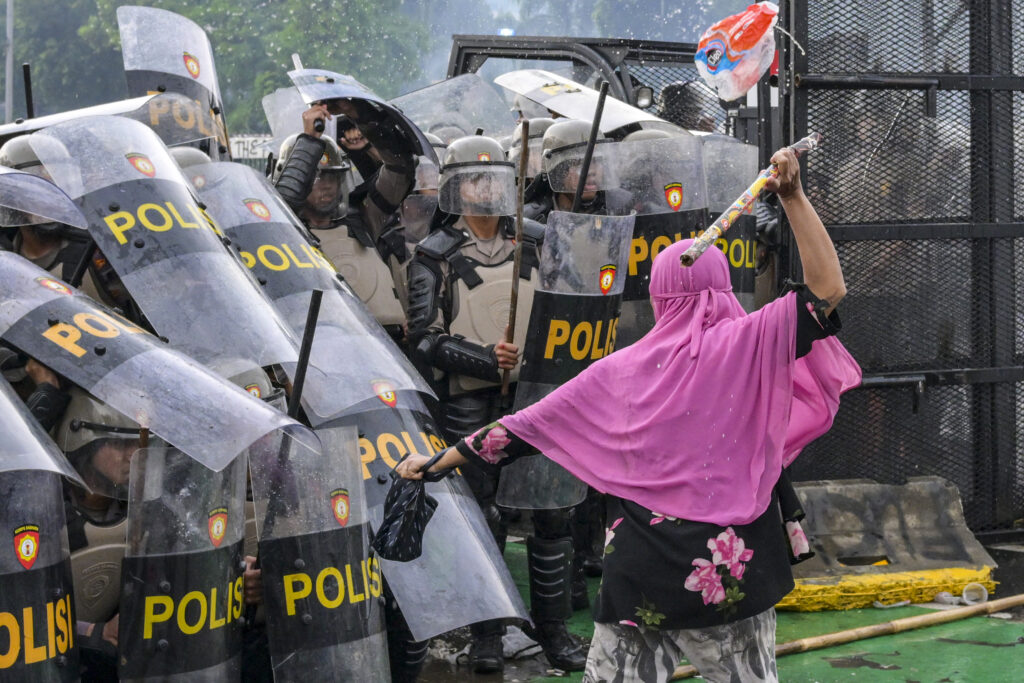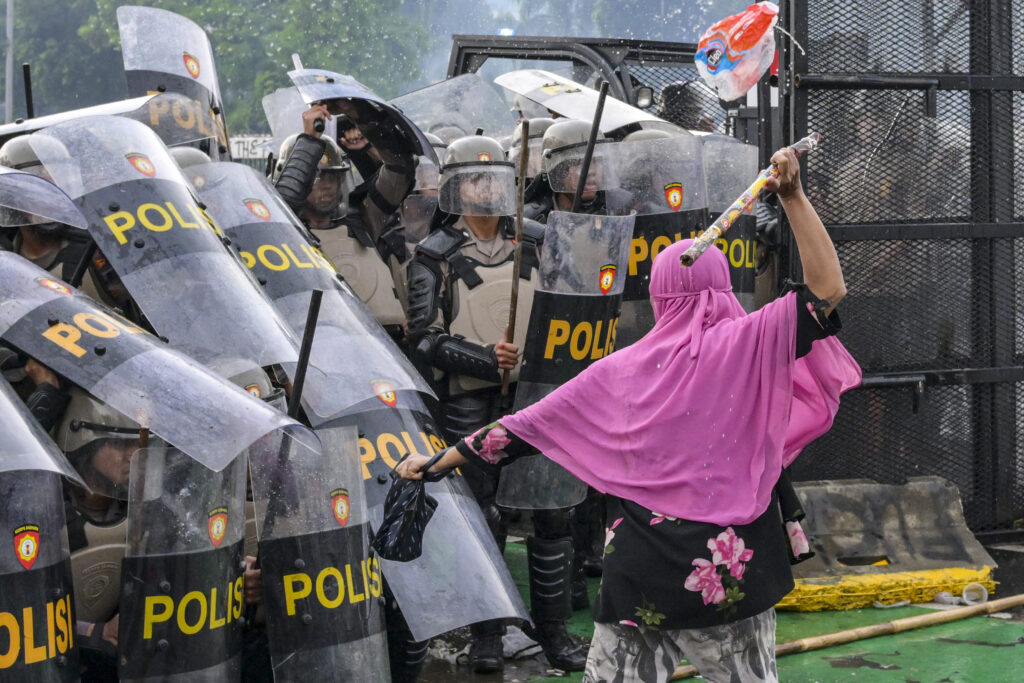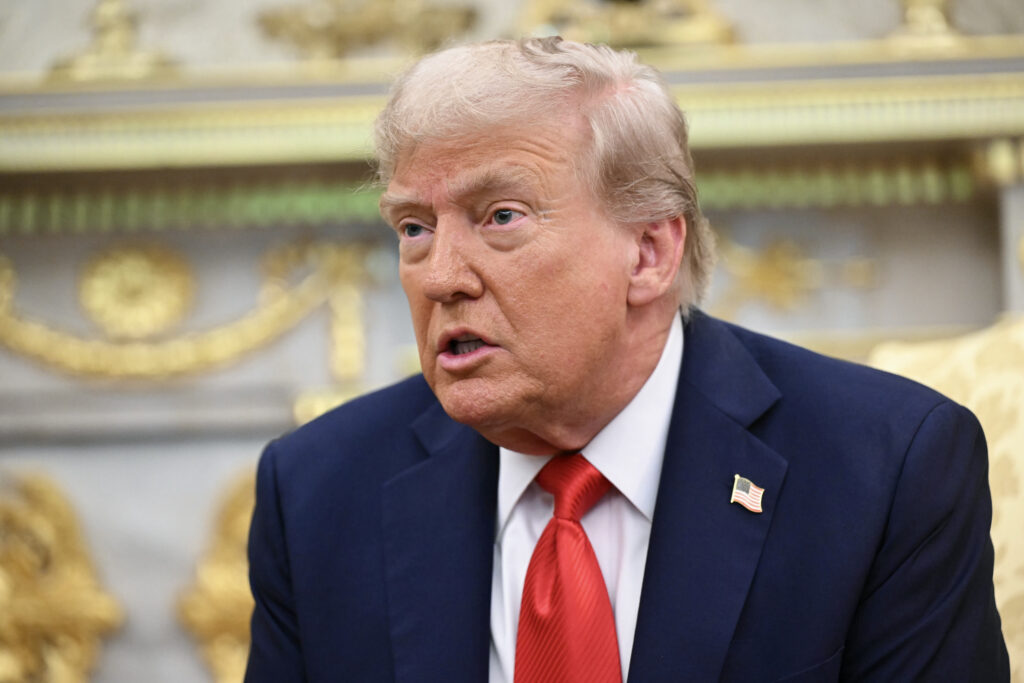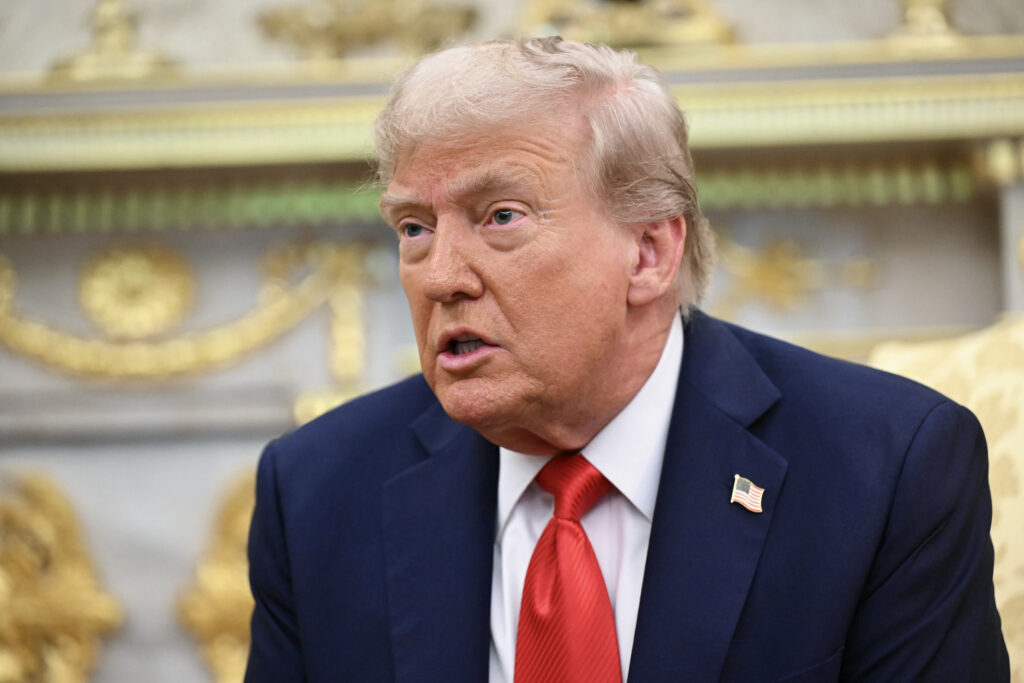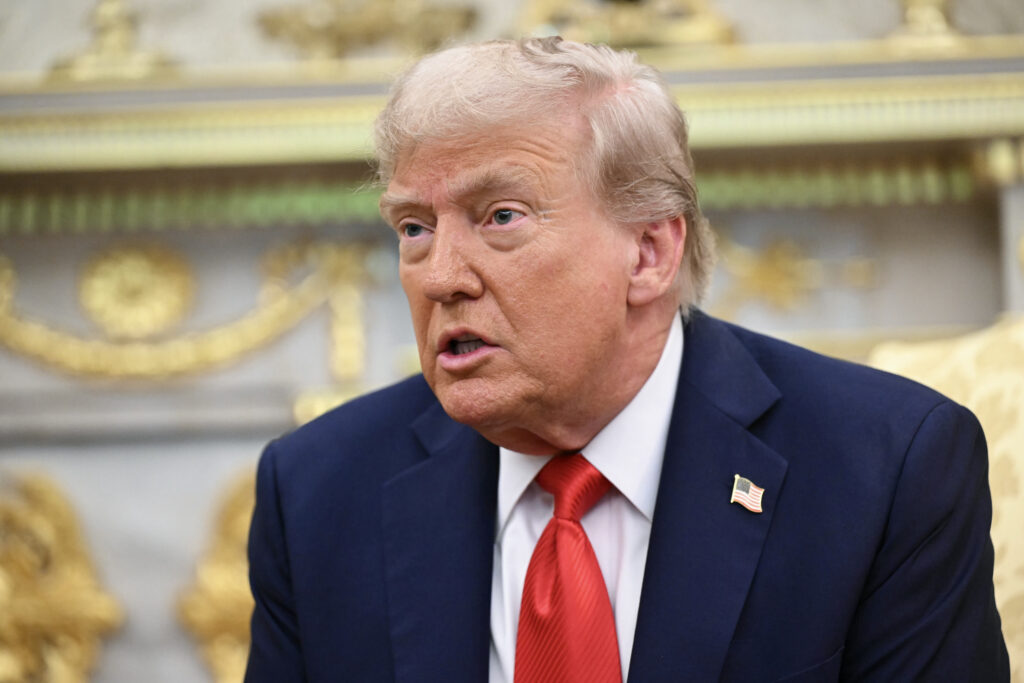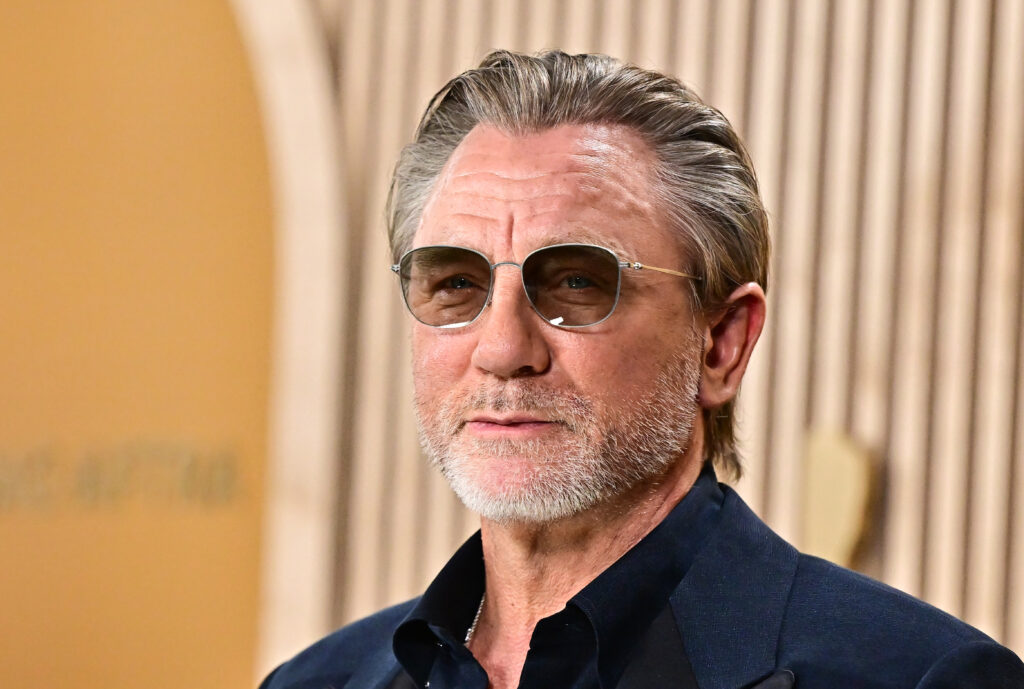‘Pink and green’ protests call for a reset in Indonesia
“RESET SYSTEM” reads graffiti above an intersection in the Javanese city of Yogyakarta, painted hastily in vibrant green and pink after deadly protests swept Indonesia last week.Pink and green have quickly come to symbolise a solidarity movement after violent protests, sparked by discontent over economic inequality and lavish perks for lawmakers, rocked Southeast Asia’s biggest economy.In the capital Jakarta, office worker Dila paused at her desk to apply a bright green and pink filter to her Instagram and WhatsApp profile pictures.”What we need now is solidarity among each other… because there’s still a long way to go,” said 28-year-old Dila, who declined to give her full name.Pink represents the colour of the hijab worn by a woman who stood outside the House of Representatives to protest, waving the national flag in defiance of police guarding the building.Green has come to symbolise 21-year-old delivery driver Affan Kurniawan, who was run over by an armoured paramilitary police vehicle and whose death stoked anger among workers who face big pay deductions and longer working hours.Affan was on a food delivery order and was wearing a bright green jacket, common among ride-hailing drivers across Indonesia, when he was killed last Thursday.”There must be reform in our police force, impunity cannot be allowed to continue,” Dila said.”This is not only about the current demonstration, but the accumulation of cases from the past.”The protests marked the worst unrest since President Prabowo Subianto, an ex-general and once a son-in-law of the military dictator Suharto, took power less than a year ago.- ‘Brave Pink, Hero Green’ -The “Brave Pink, Hero Green” movement that sprang from the protests has forced Prabowo and parliament to make U-turns on the perks that angered Indonesians across the sprawling archipelago.Those perks included overseas travel and housing allowances for MPs that were nearly 10 times the minimum wage in Jakarta.Indonesia recorded a surge in growth in the second quarter of the year on the back of manufacturing and export demand.Yet that is not being felt in the wallets of everyday Indonesians, who see a corrupt political class enriching itself while economic disparity widens.”It’s the whole corrupt system, there is too big a distance between people in the government, the parliament, and us as the people they have to serve,” office worker Dila told AFP.She, like many others, has adopted the “brave pink hero green movement” as a way to spread the word online among those who may not have been aware or who did not join the protests.Some design and draw their own images, while others have created a free website image generator so that people can modify their own pictures.”Perhaps this is one of the ways to remind people that this issue deserves our attention,” Dila said.- ‘We are not the problem’ -A state-affiliated rights group said on Wednesday that at least 10 people were killed and hundreds injured during the protests, while another NGO has said at least 20 people were missing.The protests have eased and Prabowo, who had called for calm, left late on Tuesday to attend a massive military parade in Beijing after earlier delaying the trip.Prabowo had stayed behind to deal with the demonstrations after saying that some of the protesters’ actions were “leaning towards treason and terrorism”.Mutiara Ika Pratiwi, from the women’s rights group Perempuan Mahardhika, said she was “devastated” that Prabowo had described the protests in such a way.”The people are not the problem. We have the right to protest because our voice has never been heard,” she told AFP.”This is beyond resentment, this is compassion that evolves and becomes the symbol of resistance,” Pratiwi said of the pink-and-green movement.- ‘Crucial pillar’ -Muhammad Dwiki Mahendra, 27, joined the movement from Germany, where he is undertaking a Master’s degree in peace and conflict studies.”I believe this is a crucial pillar in countering the narrative often used by the government, which views community movements as being manipulated by foreign forces,” he told AFP.He said the government’s public communications had been poor and had “not answered or addressed the existing issues at all”.Only then would change be possible, say adherents of the pink-and-green movement.”I can feel that we are not alone, when I see others use the same filter I feel joyful,” said Sphatika Winursita, a 25-year-old from Banten province west of Jakarta who changed her Instagram profile on Monday.”I’m proud that we have each other to fight for our dream.”
